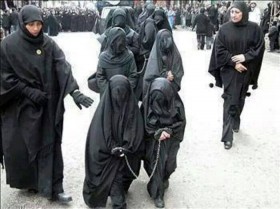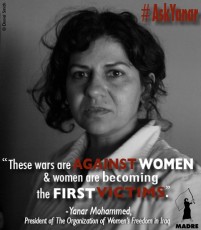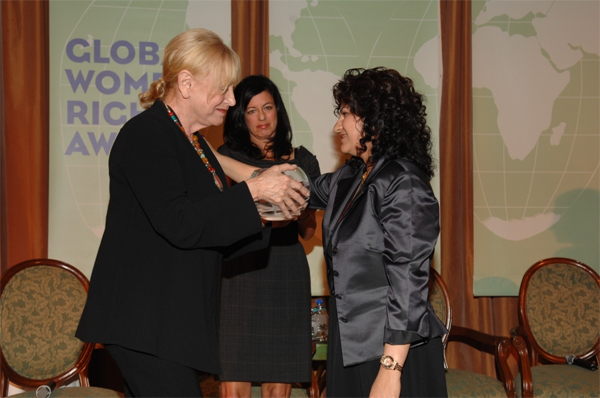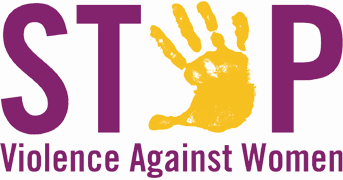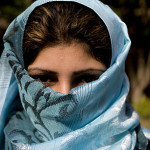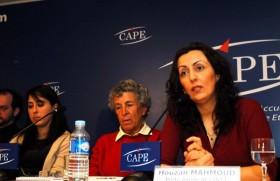 Hazhar Osman: What is your opinion on Islamic State jihadists?
Hazhar Osman: What is your opinion on Islamic State jihadists?
Houzan Mahmoud: I would rather call them ISIS terrorists, since in my opinion Islamist jihad has always been about terror and terrorism. We can no longer separate the two terms, jihad and terrorism. Terror against defenceless civilians and massacres of non-Muslims – even Muslims who are not from the same religious sect – have become visible characteristics of jihadist/terrorist groups. Look at all the Islamic governments in our region: They are very similar to ISIS, if not the same. Anything to with Islamism and jihad has a very similar outcome for people in terms of brutality. What ISIS did recently, regardless of their origin and who is behind them and why they arrived in Mosul, is in itself a big story. At the same time we all saw how they are targeting Shiite civilians, Christians, Yazidis, and all other religious groups in Iraq.
I will always associate jihadists/terrorists with killing and rape, taking women as sex slaves to sell in ISIS slave markets and beheadings of civilians. They will never have any other associations in my mind and memory. We should all remember what they’ve done to Yazidi women, Christians, and other groups. They have left a dark stain and created a bloody history for themselves. Kurdistan will never be the same again; we should never tolerate Islamist terrorism and genocide. Kurdistan and its Peshmerga forces have proven to be in the forefront of fighting against these forces of darkness and medievalism.
Hazhar Osman: Why women are involved and fighting for ISIS jihadists?
Houzan Mahmoud: Women involving themselves in politics over the past decades have become a noteworthy phenomenon in the Middle East. People join political parties because the particular ideologies fit with their ideals of life. Of course there will be men as well as women joining ISIS for different reasons. Many political parties including Islamist parties, both those who are in power and outside of power, have women in their ranks. Also, each political party needs a huge membership, men or women it does not matter, so long as they can attract new people and recruit them into their ranks.
Having women involved in politics has been a result of the ongoing struggle by women to be part of the decision making in political parties and in government. Women constitute half of society. But women are no longer only home makers; they are also present at work, at university, and even in the military in some countries. Political parties need to draw women into their ranks to make themselves “credible”.
Above all, Islamic jihadist/terrorists want women for sex. A huge part of their propaganda has been about sex and sexual jihad. They promise men 72 virgins in heaven and sexual jihad or Jihad Al-nikah on earth, whereby female terrorists will serve male terrorists by providing sexual services. The whole idea of the sexual objectification of women has been part and parcel of their politics. After all it is taken from their holy book and Islamic Sharia law.
Hahzar Osman: Many feminists held the view that women are marginalized in Kurdish policy making, but we have seen many women politicians as spokespersons of their country in this life-and-death situation. What are your views on this?
Houzan Mahmoud: I would still argue that women in our region are not fully empowered and our existence is not fully acknowledged. We have been struggling on many fronts with our male counterparts. Women themselves have made gains and proven their public existence by entering the many professions, politics, art, education, and even the Peshmerga. Despite this, we are still far from being seen as equal human beings in our societies.
Let me make it clear here that having women in high-party posts and as spokespersons does not necessarily reflect their own will. We know in politics that people have to follow the party line and agenda, even if that agenda is detrimental to women’s rights and empowerment. Of course I am for women’s presence and existence in all spheres of life. The important thing is we must continue with our fight for rights, freedom, and dignity for society as a whole. However, if the system is patriarchal and has retained all the structures that discriminate against women, how can women politicians be visibly effective?
Hazhar Osman: Tens of thousands of Yezidis, Christians, and other minorities in Iraq have been displaced, including children and women. What should Kurdish authorities do for them? Do you believe that they may face abuse, rape, and death?
Houzan Mahmoud: What has happened to our Yazidi brothers and sisters is genocide. This was not the first time: Yazidis have been subjected to genocide several times in history. What ISIS terrorists did to all groups in Iraq, and especially to Yazidis, by kidnapping women and children to sell as sex slaves is horrendous and beyond my worst nightmares. Let alone the beheadings and the massacres of Yazidi men. All of us are duty bound to publicize it, talk about it, tell the world, make films, and write the story as it happened.
Let me say that the Iraqi regime is useless and dysfunctional. Above all, it’s an ethnic-sectarian regime. They did not want to, and were incapable of, providing protection to anyone. The Iraqi regime is itself part of the problem, containing as it does representatives of political parties that are as bad as ISIS.
Although my hopes are not very high for the Kurdistan Regional Government, they should work harder to save Yazidis and bring back the captured women and girls. Also they should fully compensate people who have lost their homes, bread winners, children, and loved ones. The victims need care, attention, support, and solidarity. Their ordeal will need to be discussed and coped with for many years to come.
I am deeply saddened and shocked by all the brutality taking place in our region today. Islamists and right wing fascists are targeting particular groups and turning people’s lives into hell. Political Islamist ideology should be countered more forcefully wherever it raises its head. Our society has gone through many ordeals; we don’t need this outdated religious ideology to ruin our gains, lives, and countries. It should be pushed back into the desert where it belongs.
Houzan Mahmoud is a Kurdish women’s rights campaigner, and the Spokesperson of the Organisations of Women’s Freedom in Iraq. She was born in Iraqi Kurdistan in 1973 and currently residing in London. Her articles were published in UK publications including The Independent and The Guardian, The Tribune, The New Statesman and others. Houzan is an international voice for women’s and workers’ rights in Iraq and Kurdistan; led many campaigns internationally, including campaigns against the rape and abduction of women in Iraq, and against the imposition of Islamic sharia law in Kurdistan and Iraqi constitution. She led many other campaigns around the world against so-called honour killings, and against violation of freedom of expression. She has written many articles about the situation of women in Iraq, Kurdistan and Middle East, which have been translated into and published in many languages.
- MA in Cultural Studies, Goldsmiths, University of London, Sep 27, 2013 to Sep 27, 2014.MA in
- Gender Studies, SOAS, University of London, 2012


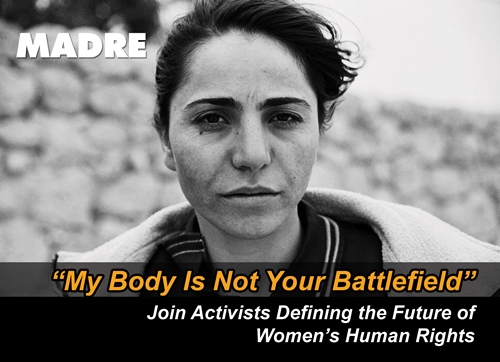
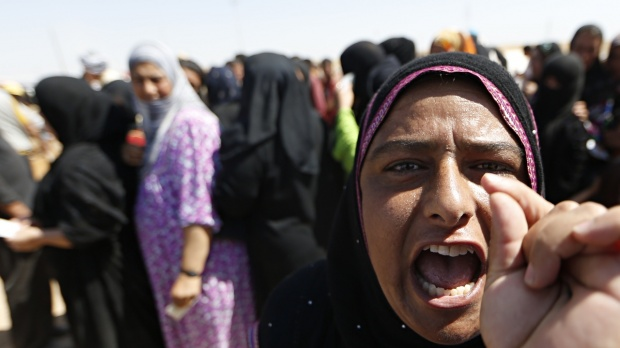 This is how an extremist agenda is imposed: on women’s bodies. That fighter had barely arrived in Mosul yet his first order of business gives us a chilling glimpse of a broader strategy, one that targets women with repression and violence. In recent weeks, women living under Isis control have been
This is how an extremist agenda is imposed: on women’s bodies. That fighter had barely arrived in Mosul yet his first order of business gives us a chilling glimpse of a broader strategy, one that targets women with repression and violence. In recent weeks, women living under Isis control have been 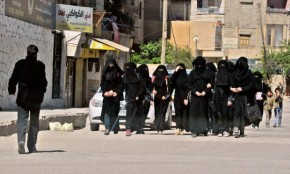
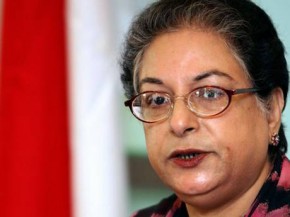
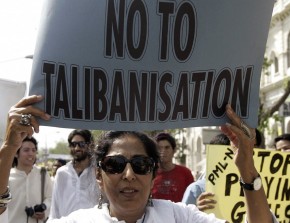
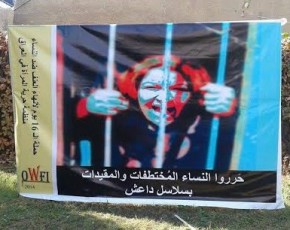 On June 10, the occupation of the city of Mosul started a new chapter of women’s suffering in Iraq. Daesh (ISIS) reawakened the ancient tribal habits of claiming women as spoils of war. While most of the detained thousands of women were from religious minorities such as Yezidies, there were also hundreds of Turkmen Shia, Shebek and Christians.
On June 10, the occupation of the city of Mosul started a new chapter of women’s suffering in Iraq. Daesh (ISIS) reawakened the ancient tribal habits of claiming women as spoils of war. While most of the detained thousands of women were from religious minorities such as Yezidies, there were also hundreds of Turkmen Shia, Shebek and Christians.
